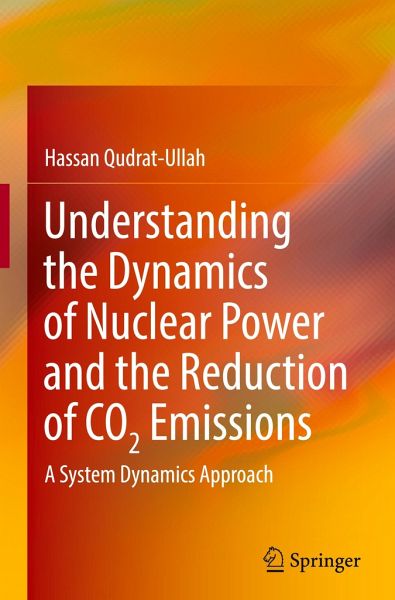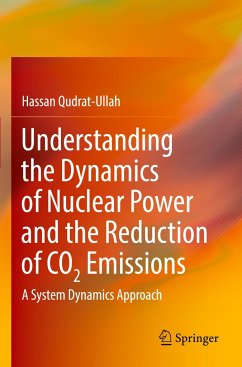
Understanding the Dynamics of Nuclear Power and the Reduction of CO2 Emissions
A System Dynamics Approach
Versandkostenfrei!
Versandfertig in 6-10 Tagen
149,79 €
inkl. MwSt.
Weitere Ausgaben:

PAYBACK Punkte
0 °P sammeln!
This books explains a strategy that a country can meet its CO2 emission reduction targets (e.g., as are in Paris Agreement) with a dominant share of nuclear power with a balanced energy supply mix. The book starts with an introduction to the subject of energy policy, mechanisms, and CO2 emissions, and the complexity of the CO2 reduction goal. It introduces the system dynamics approach as a solution modeling approach for dealing with the complexity of CO2 reducing policies and mechanisms. The book presents the dynamic model and its key parameters and then elaborates the structural and behaviora...
This books explains a strategy that a country can meet its CO2 emission reduction targets (e.g., as are in Paris Agreement) with a dominant share of nuclear power with a balanced energy supply mix. The book starts with an introduction to the subject of energy policy, mechanisms, and CO2 emissions, and the complexity of the CO2 reduction goal. It introduces the system dynamics approach as a solution modeling approach for dealing with the complexity of CO2 reducing policies and mechanisms. The book presents the dynamic model and its key parameters and then elaborates the structural and behavioral validity of the dynamic model.
The book gives an intensive review to do that comparative analysis involving China, India, Saudi Arabia, UAE, and Pakistan. The last half of the book focuses on the case in Pakistan. The author reviews Pakistan's Intended Nationally Determined Contribution and other key sources from Pakistan's Ministry of Energy and related institutions. Using Pakistan'scase data, the author applies the system dynamics modeling approach whereby a dynamic model, capable of representing the important interactions among various sectors of the electricity supply sector of Pakistan.
This book is intended to be of use to policymakers, managers and practitioners, teachers, researchers, and students of design and assessment of policymaking for the complex, dynamic energy systems
The book gives an intensive review to do that comparative analysis involving China, India, Saudi Arabia, UAE, and Pakistan. The last half of the book focuses on the case in Pakistan. The author reviews Pakistan's Intended Nationally Determined Contribution and other key sources from Pakistan's Ministry of Energy and related institutions. Using Pakistan'scase data, the author applies the system dynamics modeling approach whereby a dynamic model, capable of representing the important interactions among various sectors of the electricity supply sector of Pakistan.
This book is intended to be of use to policymakers, managers and practitioners, teachers, researchers, and students of design and assessment of policymaking for the complex, dynamic energy systems














